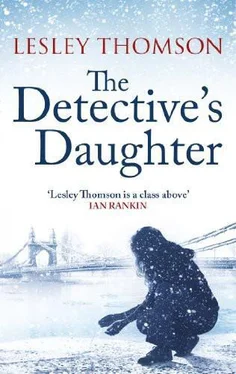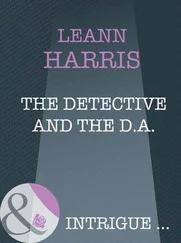There was more scraping of shoe leather, clearing of throats. Stella looked around for Jack but could not see him. The hearse rolled forward, led into the porch by a slow-stepping police officer, holding Terry’s police cap balanced on a cushion. It glided to a stop and the funeral staff came forward and drew out the flag-draped coffin on its runners.
A man touched Stella’s elbow.
‘We will lower it on to your shoulder. Don’t make any sudden movements, keep in step with the man in front and the man to your left and you will be fine.’ He held her gaze, a slight smile lifting the corners of his mouth.
‘We’ll take it in turns. I’ll carry it until we get across the road, then you can have the conkers when we get to the other side, I promise. I know you’re a strong girl.’
Stella would not have a tantrum if he kept hold of the conkers all the way, but she would mind. She needed to prove herself. The basket bumped against her legs and he could see it was too much for her, but no way was she giving up.
It was getting light when they reached the house. She carried it all the way.
‘That’s my girl.’ He gave her a quick smile.
The wood was unremitting; the pressure immense, crushing her. Stella clasped the underside of the coffin with her left hand; her right gripped the handle to keep it steady. She had to summon all her strength; the coffin grew heavier with every step.
The aisle was long. Pew after pew passed; she was in step with the other bearers, their feet in unison with slow and certain tread. The man who had helped her receive the coffin was again by her side; slipping into place in front of her he lowered the coffin on to the catafalque. With the others, Stella bowed her head to the coffin and then she stepped into the front pew where she sat alone.
‘The Lord’s my shepherd, I’ll not want.
He maketh me down to lie…’
‘You’re going to live in a brand new home with Mummy. You’ll come here at weekends. We will have adventures same as ever. You and me, we’ll be the best detectives ever.’
He gave her a bit of a push to get her going down the path so she didn’t see his face. Stella was a clever little thing. She knew as well as he did that nothing would ever be the same.
‘…In pastures green; he leadeth me
The quiet waters by…’
Stella and her mother had gone to live in a flat by Barons Court station in West London. From that day, she had made herself forget her dad. He had lied to her about it making no difference and she told herself she would not forgive him.
Stella laid two roses – one red and the other white – on his coffin. Jack had told her that the combination signified unity. Her lips moved silently: May you rest in peace.
‘…My soul He doth restore again
And me to walk doth make
Within the paths of righteousness,
E’en for His own name’s sake.’
She got up to leave and was flanked by someone either side of her; Jack and Jackie walked with her out of the church.
Behind them Terry Darnell’s coffin trundled off the catafalque into the committal room and the curtains closed.
Monday, 10 January 2011
Terry blundered into the cover of the trees. With so few graves in this part of the churchyard, there was nowhere to hide. He ran heavily, the change in his trousers jingling; he clutched his pockets. He tried to vault over the low wall, but his muscles would not work and he lost his footing. The drop on the other side was greater and he landed awkwardly, ripping his jacket on barbed wire. He lay on his back, staring up at the sky, waiting for a face to appear over the wall. In the silence he became aware of the call of rooks. He rolled on to all fours and clambered back to the wall, grabbing tufts of grass for meagre purchase. He counted to ten and peeped over the jagged flint.
Ivan Challoner knelt at the foot of the grave. He had a longish package wrapped in paper. He had changed his clothes; when he had left his surgery three hours before he was wearing a brown suit and a raincoat, every inch the sociable dentist, nodding to a passer-by as he unlocked his car. Now in baggy corduroys, a shirt and buttoned-up cardigan under a tweed jacket with leather elbow patches, he had become a country gentleman. Familiar with village routine, Challoner knew precisely when to bring his flowers so as to avoid meeting anyone.
Terry raised his camera. The light was thinning but he could not risk flash. He steadied himself on the wall and fired off some long shots; then he zoomed in as Challoner rested the flowers against the headstone, unfurling the paper. The images would be good enough to connect Challoner to the flowers.
Challoner had bought them from a florist’s by Kew station that afternoon. Tomorrow Terry would show Challoner’s picture to the woman behind the counter. She would remember him. Terry would build the case brick by brick; Challoner would not escape.
Challoner was muttering, but Terry was too far away to hear the words. He was just feet from the man who had blighted his own life. Terry wanted to accost him but Challoner would have a plausible story. Some photographs and the hunch of a jaded ex-detective was not enough to get a conviction. Terry needed cogent evidence.
He heard a rasping and looked about him before understanding that Challoner was making the noise. For twenty minutes, loose locks of thick grey hair tumbling forward, the man scratched at the inscription with what looked like a screwdriver, all the while talking in a soothing tone.
Terry was cold and his limbs were stiffening, but he dare not shift. He was relieved when Challoner stood up and, retrieving the discarded bouquet, stepped up the slope. Terry waited until he had gone and then clambered over the wall, ripping his shirt, and hastened after him.
He was in time to see Challoner stick the dead flowers in a bin by the gate. Terry let him pass behind the eastern buttress of the church and skirting the path by the beech hedge ducked between the mausoleums. Challoner was fiddling with the chain on the gate. He heard Challoner push it open and close it behind him, replacing the chain.
Terry scrabbled up, his back against cold stone, stretching his legs, bringing them one at a time up to his chest and down again in sketchy imitation of the exercise given to him by the physiotherapist. It eased the tightening in his chest.
On a nearby headstone was the name Edward Challoner: he had died in 1890, his wife Emily ten years later. Terry scrambled to his feet. A son, George, had died twenty years after his mother in 1920 and a Simon Challoner, only son of George in 1957, aged forty-one, ‘his plane lost over the English Channel’. It sounded as if the man had died in action; Terry knew he had been to the races at Deauville and was Ivan Challoner’s father. Although Ivan was Kate Rokesmith’s dentist, he had not been on their radar because they had not needed dental records to identify her. The police did not connect that a Simon Challoner had treated her at his home in Bishopstone when she was three and an Ivan Challoner twenty years later in Kew. Had they done so, a lot else would have fallen into place.
Terry had posted Janet by the lych gate and joined the mourners by the grave. From her vantage point Janet would not have seen Challoner and Terry had missed him completely. Challoner had his own gate and after the funeral had slipped away. But for one photograph Terry would not have known he was there.
While supposedly keeping an open mind, as procedure dictated, the investigation was scaled down: Hugh Rokesmith was the killer and they would prove it.
Читать дальше












